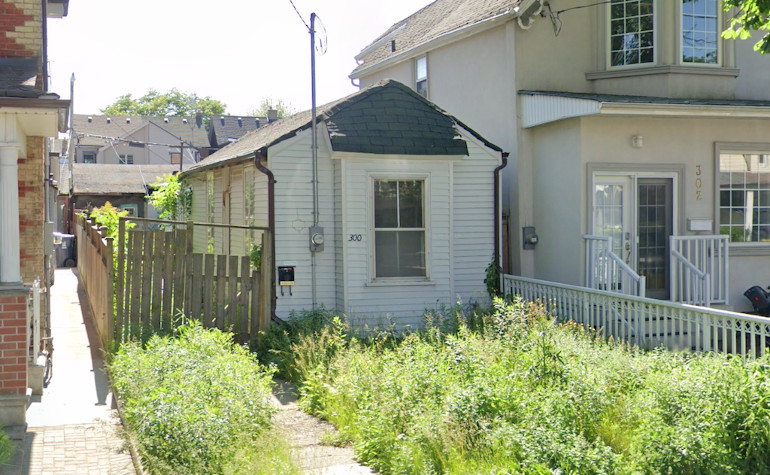The Canadian economy is in a deep recession, but the stock market and housing prices are soaring. How is this possible? Millions of Canadians lost their jobs in the spring, and the drop in GDP was worse than the 2008/09 economic crisis. Yet somehow housing prices across the country are way up, completely contradicting common sense. So, what is going on?
Recession hits lower income workers harder
This recession has hit people of different incomes very unequally. Lower paid workers have been hit a lot harder than higher paid workers. According to the Canadian Centre for Policy Alternatives (CCPA), between February and April, 52 percent of workers making $14 an hour or less either lost their jobs or the majority of their hours. Yet this was true for just 11 percent of workers making between $40 and $48 an hour and for only 3 percent of those making over $48 an hour.
Things eased over the summer, but the big difference between the high and low earners remained. In September, 18 percent of workers making $14 an hour or less either lost their jobs, or the majority of their hours. On the other hand, many of the higher waged workers not only recovered, they’re better off than before! The percentage of people employed in the $40 to $48 an hour range was actually 6 percent higher in September than February, and 3 percent higher for those making more than $48. The job losses this year disproportionately hit non-unionized workers, young workers(especially young women), recent immigrants and single parents with young children.
Rich get richer during pandemic
In contrast, the pandemic has been great for the super rich. According to the CCPA, “the country’s top 20 billionaires have amassed an average of nearly $2 billion each in wealth during six of the most economically catastrophic months in Canadian history, for a combined total of $37 billion.”
The super rich and many high-paid employees are doing fine in spite of COVID and the deep recession. They have plenty of money. A November report from CIBC estimates that Canadian households have savings of $90 billion. Of course, low income and laid-off workers are struggling and falling into debt.
Housing market surging
Meanwhile the housing market is surging across the country. After a precipitous drop in sales in March and April, the market heated up over the summer and average annualized home prices have consistently increased month over month since May. Prices are also up significantly from the same time last year. The Canadian Real Estate Association reports that the average home sale price in October was 15 percent higher than that of the previous year. The MLS Housing Price Index, which corrects the skew from super-expensive sales on average prices, increased 10.9 percent year over year in October.
It seems that the big price increases are being driven, not by the inner core of the major cities but, by the peripheries. The largest increases in Greater Vancouver are in Port Coquitlam, Mission, South Surrey, and Abbotsford (5 percent increase or more over 3 months), while prices in those close to the core, such as Burnaby, East Vancouver, and Downtown have increased more slowly (2.1 percent increase or less over 3 months).
A common narrative is forming: highly paid workers and professionals have changed their priorities and spending patterns. Increased space, both in their houses and outside, has gone up in value. On the other hand, being close to their workplaces is less important as they are working more from home and spending less time travelling to work. The better-off are spending less money on travel and holidays away and going out to restaurants, movies, and theatre, so have more money. They are able and willing to put more of their money into housing. Many want to have yards so they can be outside, and their kids can play without worrying about social distancing. As they are less tied to being in the city, they are migrating to the suburbs and driving up demand and prices in those areas.
A similar effect can be seen as people are moving from major centres like Toronto to medium cities like Halifax, where prices have increased 13 percent since the start of the year, and buyers are now facing unprecedented bidding wars. Even smaller towns are seeing an increase in demand, pushing up prices, with the Northern BC Real Estate Board reporting the most sales ever recorded, and a 14 percent increase in prices since a year ago.
Given the trend of the well-off to move from the big cities, why aren’t house prices in big cities dropping? Within the big cities the prices for detached houses and condos are looking quite different. While average home prices are increasing in the city, the trend in condos is much lower, possibly even decreasing, which is consistent with the theory that people are looking for more space.
City condos were often seen as easy investments with rents charged higher than the mortgage payments, which drove up their price. But the combination of higher wage earners looking for larger spaces, so being less interested in condos, restrictions on migration and tourism, and young people leaving the city because their jobs or university classes have disappeared or moved online, means that the rental markets in several cities have cooled significantly. A flood of former Airbnb units has contributed to a cooling of rents. According to Rentals.ca, average rent offered in Vancouver dropped 5 percent in the last 3 months. In Toronto, a report from TorontoRentals.com showed a 16.9 percent drop year over year for condo rentals in September. Suddenly, buying a condo just to rent it out is looking less attractive, and while detached homes in Toronto have increased 15 percent year over year, condo prices have increased only 1 percent.
But the expensive single-family homes in cities like Vancouver and Toronto are still increasing in price and dragging with them the average and benchmark prices. In part, all of this demand for new homes and bigger spaces is being stimulated by historically low mortgage rates, and the Bank of Canada has signalled that it intends to keep rates at only 0.25 percent until 2023 in order to meet its inflation target. So, some renters are taking the plunge and buying a house.
On top of that, the rich have tonnes of cash right now. All that stimulus money from the government emergency response programs, not to mention the billionaire profiteering schemes, has got to go somewhere. Of course, the money to ordinary workers, who have lost their jobs or part of their income, is being spent to stay alive.
Corporations and rich hoarding rather than investing
Contrary to what the Liberals in government or Conservatives in opposition claim, the money the corporations and the super-rich have is not being invested productively in the economy. Even before COVID and the recession, they were not investing in the economy. They were hoarding money, buying back company shares and putting money into speculative bubbles including the stock market and housing. Housing is seen as a safe place to park loose cash. But money invested in expensive housing is doing nothing useful, only keeping home prices out of reach for everyone else.
Government delay tactics
It’s clear that the housing market can’t keep growing while the rest of the economy is in a recession. Government responses to the pandemic and the recession have been delay tactics, but nothing has resolved the underlying issues. The spring lockdowns temporarily limited the spread of COVID-19, but nothing was fundamentally changed to prevent the resumed spread once the economy was reopened, which is now the case with COVID out of control in large parts of Canada. The same thing can be said for the temporary economic aid provided to business and individuals. In particular, mortgage deferral programs that allowed people to delay making their payments came and went by the end of the summer.
There is a regional dimension to this as well: while the overall uptake of mortgage deferral programs was 11 percent across Canada, it was especially high in Alberta, at 18 percent in Calgary and 21 percent in Edmonton. At present, with rising house prices, banks are not rushing to foreclose, as the loan is secured by the house’s price. If at some point the flow of people moving up the housing market slows, and prices stagnate or drop, banks may begin to start pulling the trigger on foreclosures. This could rapidly snowball as foreclosures will hit house prices. In this situation people will lose their homes.
The Canadian and world economy was already on the edge of recession; COVID sent it over the cliff. In the summer, as COVID and restrictions eased, there was some hope the recession would not be long lasting. However, as the federal and provincial governments did nothing to prepare for the second wave and failed to act promptly as cases soared, the economy will be hit hard. A deep and long recession will hit demand for houses; there are only so many houses that the super-rich will buy. A collapse in the housing market will hit construction, a key sector of the Canadian economy, which will add to unemployment and the recession.
Renters could face evictions
Renters are in equally risky position. Most provinces instituted some kind of moratorium on evictions that lasted until the end of the summer. But now renters are on the hook for the rent they missed, like in BC where they are required to pay it back by July 2021. But as the fundamentals of the economy have not improved, and many renters are still unemployed or on reduced hours, how can they be expected to pay off all that extra rent? At the moment the rental market is cool in the big cities. So far there hasn’t been a flood of evictions, but this is only a delay. Not everyone is going to be able to pay back their missed rent; at some point there will be a swell of evictions.
However, with soaring house prices in places such as Halifax, rents are rising. Nova Scotia abolished rent control in 1993 and as rents soared this autumn the Housing Minister claimed rent control “doesn’t work.” On November 25, faced with protest at the soaring rents and evictions, the government has imposed temporary controls.
Volatility continues into 2021
All this points to a volatile and unpredictable 2021. The BC Real Estate Association expects that over 2021, housing prices will rise by 6 percent in Greater Vancouver, while Moody’s analytics predicts a 7 percent drop in the same city; there is no consensus. On multiple fronts, governments, landlords, and the rich are doing everything they can to delay crises without addressing fundamental problems in the economy. The goal everywhere seems to be to just hold on long enough for a vaccine. But mass vaccinations are hard to pull off, with the federal government currently aiming to have 50 percent of Canadians vaccinated by September 2021. A vaccine will not tackle the basic problems of the lack of affordable housing.
Even if COVID disappeared tomorrow, that wouldn’t address the deep recession and the long-standing lack of investment in production. In the great recession of 2008-09, China played a leading role in stimulating the world economy through massive infrastructure projects, but now all of the low-hanging fruit has been taken and so that strategy will not work again, especially in the context of escalating conflict between China and the US. Thus, the recovery from this recession will be harder than that of the last decade. The ruling class will, as always, seek to defend their rates of profit and put the burden of the recovery on the working class through austerity. But this time the sham is even more obvious, since we’ve seen how the world’s billionaires are hundreds of billions of dollars richer than before the pandemic. We need to be clear that those billions were created by the working class, and we demand that the rich be on hook for the consequences of their own economic system.
Socialist Alternative campaigns for:
- A large national program, using unionized workers, to build decent, safe, sustainable and affordable public housing and to renovate existing homes.
- Universal and comprehensive rent control and security of tenure.
- Nationalize the big developers, construction companies and corporate landlords.



